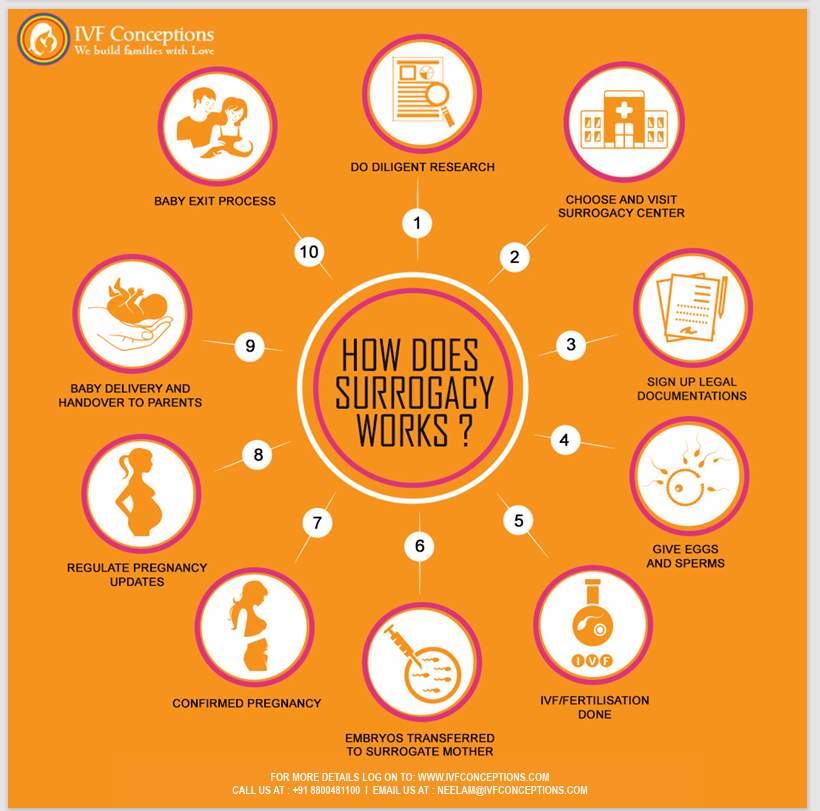How to Find a Surrogate Mother: Your Guide
Ever thought, “How do I find a surrogate mother?” Surrogacy is a great choice for those who can’t carry a baby themselves. This guide will walk you through finding a surrogate, with or without an agency. Get ready for an amazing journey to expand your family.
- Book an online appointment: Get a free online consultation.
- Call\W:+91-8800481100 Email:neelam@ivfconceptions.com
Key Takeaways
- Surrogacy is a viable option for couples and individuals who want to have children but cannot carry a pregnancy themselves.
- The surrogacy process involves finding a surrogate mother, also known as a gestational carrier, to carry the baby.
- Intended parents can choose to work with a surrogacy agency or pursue independent surrogacy, each with its own advantages and challenges.
- Surrogacy agencies can help match intended parents with pre-screened surrogate candidates, streamlining the process.
- Independent surrogacy may offer lower costs but requires more time and resources to find and coordinate the necessary services.
Additional resources to Read:
Important Questions to Ask a Surrogacy Agency
Disqualifications for Surrogacy – What You Need to Know
Is Surrogacy Covered by Insurance? Your Guide to Coverage
How Much Does a Surrogate Cost – Key Details Explained
Understanding the Surrogacy Process
Surrogacy is a special arrangement where a woman, the surrogate mother, carries and gives birth to a baby for another person or couple, the intended parents. This process has legal, financial, and emotional parts that need careful thought.
What is Surrogacy?
Surrogacy means a woman agrees to carry a pregnancy for another person or couple who will be the child’s legal parents when born. The surrogate might or might not be related to the child by blood, based on the surrogacy type.

Types of Surrogacy
- Gestational Surrogacy: This type doesn’t involve the surrogate being related to the child. The embryo comes from the intended parents’ or donors’ eggs and sperm, then goes into the surrogate’s uterus.
- Traditional Surrogacy: Here, the surrogate is the child’s biological mother, using her own egg to make the embryo.
Surrogacy often involves fertility clinics, legal steps, and certain qualifications for the surrogate. The process is complex. It’s key to work with skilled professionals for a successful and ethical journey.
| Key Surrogacy Statistics | Value |
| Babies born annually via gestational surrogacy in the US | Approximately 750 |
| Cost range of surrogacy | $80,000 to $120,000 |
| Minimum age requirement for surrogates | 21 years old |
| Minimum number of prior healthy pregnancies for surrogates | 1 |
The surrogacy journey is rewarding but complex for everyone involved. It’s important for intended parents and surrogates to know the surrogacy types, legal needs, and costs. With the help of experienced professionals, the surrogacy process can be handled well and ethically.
The surrogacy process takes 18 months to 24 months depending upon the individual circumstances
Outlines the surrogacy process timeline for intended parents:
| Stage | Description of Stage | Duration |
|---|---|---|
| Research Phase | Explore family building options and decide on surrogacy. | Personal timeframe |
| Consultation and Application | Choose a surrogacy agency, sign agreement, and start embryo creation (if needed). | 1-3 Months |
| Matching | Agency finds and presents potential gestational carriers. Meet and decide on a match. | 3-6 Months |
| Medical Screening and Contracts | Carrier undergoes medical and psychological screening. Sign surrogacy contract. | 1-2 Months |
| Embryo Transfer | Prepare for embryo transfer. Success may take multiple attempts. | 1-1.5 Months |
| Pregnancy | Gestational carrier’s pregnancy, approximately 40 weeks. | 9-10 Months |
| Birth and Postpartum | Baby’s birth, establish parental rights, and postpartum period. | 1.5-3 Months |
Please keep in mind that the durations mentioned in the table are approximate and can vary depending on individual circumstances and other factors. Always consult with a reputable surrogacy agency or professional to get personalized guidance throughout the surrogacy journey.
Preparing to search for a surrogate mother
To find surrogate mothers is one of the most important job for intended parents. Starting the surrogacy journey means looking at many important things when picking a surrogate. Surrogates go through a detailed check to make sure they’re right for the job. This includes looking at their health history, BMI, age, past pregnancies, where they live, their relationships, lifestyle, and how they feel about the intended parents.
Working with a trusted surrogacy agency can really help. These agencies know how to deal with the legal stuff, arrange things, and offer support. They have a big list of surrogates who have been checked out already. This makes finding the right match between parents and surrogates easier.

Factors to Consider When finding surrogate
- Medical history and health status
- Body Mass Index (BMI)
- Age range
- Pregnancy and delivery history
- Geographic location
- Relationship status and family situation
- Lifestyle and personal values
- Emotional connection and compatibility with intended parents
Benefits of Using a Surrogacy Agency
- Experienced in navigating the legal and financial aspects of surrogacy
- Maintains a database of pre-screened and qualified surrogate candidates
- Handles the complex matching process between intended parents and surrogates
- Provides comprehensive emotional support and guidance throughout the surrogacy journey
- Ensures compliance with all applicable laws and regulations
Thinking about these things and using a surrogacy agency’s help can really up your chances of finding the right surrogate. This way, you can build your family with the right person’s help.
| Surrogate Qualifications | Surrogate Screening Process |
|
|
How to Find a Surrogate Mother
Looking to build your family through surrogacy? You have two main ways to find a surrogate mother. You can either work with a surrogacy agency or go for independent surrogacy. Each method has its own benefits and things to think about.

-
Working with a Surrogacy Agency
Surrogacy agencies have big lists of surrogates who are ready and qualified. They help match you with a surrogate, set up legal stuff, and manage your surrogacy journey. They guide you through picking a surrogate, making sure everything goes smoothly.
-
Independent Surrogacy
If you want to take charge, you can do independent surrogacy without an agency. This means using your networks, social media, surrogate finder websites, or attorney referrals.
It gives you more control over choosing a surrogate. But, you’ll have to handle the screening, matching, and all the logistics yourself. Remember, surrogates not with agencies might need more checks before you start.
No matter the path you choose, both you and the surrogate need legal help. They’ll make a surrogacy contract that covers everything important.
| Surrogacy Agency | Independent Surrogacy |
|
|
Choosing between a surrogacy agency or independent surrogacy depends on what you prefer, your budget, and how much you want to be involved in the process.
Screening and Matching Process
Surrogacy agencies take the screening and selection of surrogate mothers very seriously. They look for applicants who are 18 to 36 years old, in good health, and have a clean criminal record. They also want surrogates who have had healthy births before and don’t have unhealthy habits.
After passing a background check, surrogates move on to medical and psychological evaluations at fertility clinics. Once they pass, their profiles go into the agency’s catalog. Then, intended parents can look through and pick a surrogate that fits their needs and wants.
Surrogate Screening Criteria
- Prior successful pregnancies with no major complications
- Complete medical workup, including blood tests, pap smears, uterine checks, STD screenings, and drug tests
- Spouse or partner also undergoes drug screenings and blood tests for infectious diseases
- Criminal and child abuse background checks
- Specific qualifications, such as being within a certain age range, having a healthy BMI, no smoking or drug use history, and financial independence
- Ability to provide transportation to and from surrogacy appointments
- Access to counseling and ongoing support services throughout the process

Matching Intended Parents and Surrogates
The matching process between intended parents and surrogates looks at what both want. The agency offers candidates that match the intended parents’ criteria. This makes sure everyone involved works well together.
| Surrogacy Matching Methods | Advantages |
| Surrogacy Agencies | Pre-approved surrogates, quicker and safer process |
| Surrogacy Clinics | Prospective gestational surrogates within their program |
| Surrogacy Attorneys | Maintain prospective surrogate information, collaborate with other professionals |
| Networking with Family and Friends | Find a prospective gestational carrier among close relationships |
| Online Support Groups and Classifieds | Intended parents and prospective surrogates connect independently |
Building a Surrogacy Plan
Starting a surrogacy journey is thrilling and deeply meaningful. Yet, it needs careful planning for a smooth and successful path. A surrogacy plan is a detailed document. It lists the expectations and preferences of everyone involved, like the intended parents and the surrogate. This plan acts as a guide, ensuring clear communication and a positive birth experience.
Elements of a Surrogacy Plan
Creating a surrogacy plan involves several important points:
- Surrogacy Birth Plan: This part covers the surrogate’s choices for labor and delivery. It includes who can be there, pain relief options, and any specific birth procedures.
- Newborn Care Plan: It details who gets to hold the baby first, breastfeeding plans, and how the intended parents will be involved right after birth.
- Communication and Visitation: The plan sets clear rules for communication and visitation during pregnancy and after birth. It makes sure everyone’s needs and limits are respected.
- Financial Arrangements: It outlines the payment, reimbursements, and financial details of surrogacy.
- Legal Considerations: The plan covers legal aspects, like the surrogacy contract, parental rights, and legal steps needed.
With a detailed surrogacy plan, everyone feels empowered and confident. This leads to a smoother and more successful surrogacy journey.
“A well-crafted surrogacy plan is the foundation for a rewarding and stress-free surrogacy experience.”
Finding surrogate mother with or without agency?
So, how to find surrogate mothers? When looking into surrogacy, intended parents must decide whether to use a surrogacy agency or go for independent surrogacy. Each choice has its own benefits and challenges. The decision depends on the parents’ unique situation and what they prefer.

Choosing a surrogacy agency offers many advantages. Agencies have a list of pre-screened surrogates. This means a detailed check-up and a better chance of finding a good match. They also help with the legal and practical parts of surrogacy, giving support and advice along the way.
On the other hand, independent surrogacy lets intended parents take a more active role. This can mean lower costs since there are no agency fees. But, it also means doing the work of finding and matching surrogates by themselves. This can be hard and take a lot of time.
Finding the right surrogate can take a lot of time. This depends on things like where you are, the laws, and your situation. Surrogacy agencies usually have a quicker process because they already know many surrogates. Independent surrogacy might take longer to find the right person.
The choice between a surrogacy agency or independent surrogacy is very personal. Parents need to think about the benefits, challenges, and their own situation. They should plan well, do their research, and talk to experts to pick the best path for them. This way, they can have a successful and rewarding surrogacy journey, no matter what they choose.
Legal and Financial Considerations
When you think about surrogacy, you need to look at the legal and financial parts. Surrogacy contracts are key for setting out everyone’s rights and duties. This includes the intended parents, the surrogate, and any egg donors. These contracts talk about surrogate compensation, who makes medical decisions, and who gets parental rights.
The cost of surrogacy can change a lot. It depends on things like using an agency, how much the surrogate gets paid, legal fees, and medical bills. Intended parents should plan their budget well to make sure their surrogacy goes smoothly.
Surrogacy Contracts

Surrogacy contracts are legal deals that spell out the surrogacy legal requirements and duties for everyone. They cover key topics like:
- Surrogate compensation
- Medical decision-making and healthcare
- Termination and selective reduction policies
- The transfer of parental rights after the child’s birth
- Handling of any issues or disputes that may arise during the surrogacy process
It’s vital to have a skilled surrogacy lawyer to make sure the contract protects the intended parents’ rights. They should think about all legal things that could happen.
Surrogacy Costs
Looking at the money side of surrogacy can be tricky. There are many costs to think about. These might include:
| Expense | Average Cost |
| Surrogate compensation | $30,000 – $50,000 |
| Agency fees | $15,000 – $30,000 |
| Legal fees | $10,000 – $15,000 |
| Medical expenses | $10,000 – $20,000 |
| Additional costs | $5,000 – $10,000 |
Intended parents should talk a lot with their surrogacy agency and legal team. This helps them understand the money side and plan well.
More Resources to Read:
Infertility Treatment and Surrogacy Process
9 Factors To Improve IVF Pregnancy Rate
International Surrogacy Options Worldwide
Surrogacy Guide for Surrogate Mothers
Conclusion
The surrogacy journey is a deep and life-changing path for those wanting to start a family. It’s important to think about legal matters, money, and the feelings of everyone involved, whether you go through an agency or do it on your own.
Getting the right advice and support is key during this journey. Agencies offer great help and knowledge. If you’re going it alone, you’ll need to do a lot of research and have a strong support system. The main aim is to build a loving family with the help of a surrogate.
Remember, you’re not facing this alone. There are groups and places that offer help, support, and understanding of surrogacy. With care and determination, you can make your dream of being a parent come true.
If you’d like to learn more about IVF, Egg Donation, or surrogacy services globally, check out the rest of our website at Georgia Surrogacy Agency. We offer legally secure and affordable surrogacy consulting services for FREE.
Get in touch for FREE SURROGACY CONSULTING:
Mobile: +91-8800481100 ( WhatsApp, Line, Viber)
Email: neelam@ivfconceptions.com

FAQ for how to find surrogate mother
What is surrogacy?
Surrogacy is when a woman, called the surrogate or gestational carrier, carries and gives birth to a baby for another person or couple, known as the intended parents.
What are the types of surrogacy?
There are two main types of surrogacy. Gestational surrogacy means the baby is not genetically related to the surrogate. The embryo comes from the intended parents or donors. Traditional surrogacy means the surrogate is the baby’s biological mother, using her own egg.
What factors should be considered when choosing a surrogate mother?
When looking for a surrogate, consider her health history, BMI, age, and pregnancy and delivery history. Also, think about her location, relationship status, lifestyle, and how connected she feels to you.
What are the benefits of using a surrogacy agency?
Surrogacy agencies offer many benefits. They handle the legal and emotional parts of the journey. They have a list of pre-screened surrogates, match you with one, and guide you through the process.
What are the options for finding a surrogate mother?
You can find a surrogate through an agency or on your own. Agencies have a list of screened surrogates and help with the process. For independent surrogacy, you can use personal connections, social media, or get referrals from lawyers.
What are the screening criteria for surrogate candidates?
Agencies are very careful when screening surrogates. They look for applicants who are 18-36 years old, healthy, have a good birth history, and no criminal record.
How is the matching process between intended parents and surrogates conducted?
The matching process looks at what both the intended parents and surrogates want. The agency suggests candidates that fit the parents’ criteria. Once a surrogate agrees, her profile is shared with the parents for them to choose from.
What is a surrogacy plan, and why is it important?
A surrogacy plan outlines the rules for the birth and care of the baby. It’s important to agree on these things before the baby is born. This includes who can be there, where the baby will be born, and who gets to hold the baby first.
What are the legal and financial considerations in surrogacy?
Surrogacy contracts set out everyone’s rights and duties. They cover things like payment for the surrogate, who makes medical decisions, and who gets to be the parents. The cost of surrogacy can vary a lot, depending on the agency, the surrogate’s pay, legal fees, and medical costs.
Source Links
- Find Surrogate With or Without an Agency | Surrogate.com
- How To Find a Surrogate Mother (2022)
- What Is Surrogacy and How Does It Work?
- An Overview of the Surrogacy Process – 3 Sisters Surrogacy

Highly esteemed, authoritative, and trusted professional with a 14-year of experience in international surrogacy. Advocate for Secure, Legal, and Affordable International Surrogacy.
Neelam Chhagani, MA (Counselling Psychology) and Holistic Infertility and Third-Party Reproduction Consultant.
Member of European Fertility Society, Best Surrogacy Blogger of 2020, with 300 dedicated blogs, and top contributor on Quora for Surrogacy.

Add Your Comment